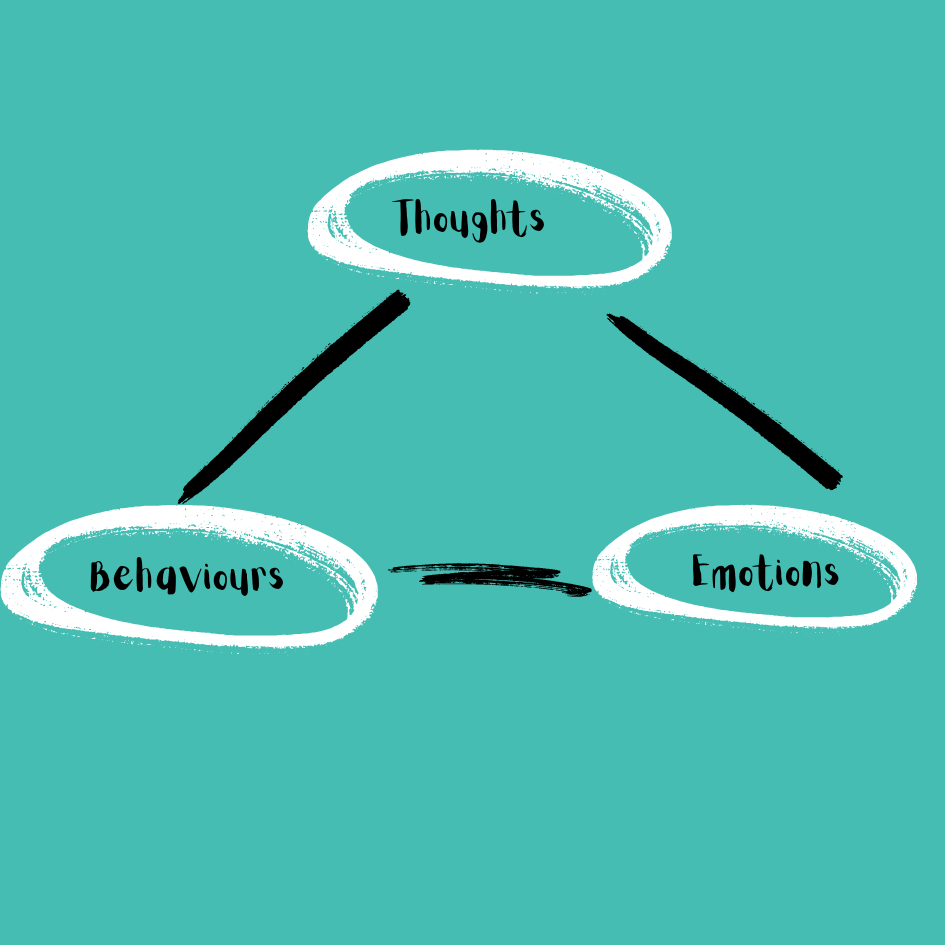Does your relationship with food need help?
Food is a constant in our lives—we think about it, buy it, prepare it, and eat it. However, our relationship with food can change with time. Aging, illness, pregnancy, parenthood, exhaustion, shift work, allergies, finances, and access can all influence our eating habits. Additionally, our body image and how we manage emotions can change as we go through different life stages. Often, our eating behaviours, body image, and emotions are interconnected, playing a significant role in shaping our relationship with food.
This blog explores signs that it might be time to seek professional help to improve your relationship with food and covers
1. Emotional eating
2. Avoidance and loss of interest
3. Negative body image
4. Obsession with healthy eating
5. Experiencing guilt and shame over eating

Emotional Eating
Emotional eating occurs when we eat in response to emotions rather than hunger. People often turn to food to feel better or to avoid uncomfortable emotions such as stress, sadness, and depression. It’s also common to eat out of boredom or loneliness. From an early age, food is associated with comfort, nurturing, celebrations and family, making emotional eating a natural but complex behaviour (Benbaibeche et al , 2023).
While it’s not unusual to engage in emotional eating occasionally, regularly using food for comfort can negatively impact both physical and mental health. Emotional eating often leads to overeating and excessive calorie consumption, which can increase the risk of obesity and make weight management challenging.
“Every day I get up with the intention of trying to eat better. I honestly do. I want to eat better. I want to be healthy… But food is comfort to me. If I am sad, I want chips, fried food, or gumbo… I try not to eat these things, but I do.”(ELYRIA et al, 2013)
Why Do We Emotionally Eat?
Everyone has their own reasons for emotional eating, and these reasons can be complex. Understanding your personal triggers is an important first step in managing emotional eating. A psychologist can help identify the specific emotions and situations that drive your impulse to eat. Here are some common reasons:
Temporary Distraction and Relief
The anticipation and enjoyment of eating favourite foods can provide a temporary distraction and a sense of relief or happiness. This can happen for two main reasons:
1. Sensory Pleasure: The taste and texture of comfort foods are enjoyable, offering immediate gratification.
2. Brain Reward System: Calorie-dense, high-fat, sugary, and salty foods stimulate the brain’s reward system, releasing feel-good chemicals like dopamine. This creates a strong association between eating these foods and feeling happy (De Macedo, 2016).
“When I’m angry I eat and cry. After I eat, I feel stupid. I know that it is going to be bad for me. Then I think back and say, “Well, if I don’t eat, I will feel depressed and angry.” I feel like if I grab something to eat, I will forget about the moment.”( ELYRIA et al, 2013)
Sometimes, we might prioritise the immediate comfort of eating over long-term health goals, choosing short-term relief even if it means feeling worse later (ELYRIA et al, 2013).
Family, Culture, Society and Our Relationship With Food
As children, our diet and eating behaviours are heavily influenced by our families. These early habits often carry into adulthood, particularly if food was used as a reward or to pacify and soothe.
The culture and society we live in also play crucial roles in shaping our eating habits. Cultural rituals, celebrations, and social gatherings often centre around food, creating deep associations between eating and emotions like comfort, happiness, or even guilt. Additionally, society influences the types of food available and how they are advertised. When energy-dense foods are readily accessible, it becomes easier to overconsume. Similarly, food advertisements that depict happy family celebrations or suggest that food provides comfort further reinforce the emotional connection to eating (ELYRIA et al, 2013).

Avoidance and Loss of Interest
A loss of interest in eating, especially if this is something we previously enjoyed, can signal deeper issues in our lives. This disinterest can extend beyond just the act of eating, affecting our enthusiasm for activities like buying, cooking, and preparing food. When our connection to food diminishes, it can reflect underlying emotional or psychological struggles, such as stress, depression, or anxiety.
Avoidance of certain foods can also be driven by our sensory experiences or fears. We might find ourselves avoiding specific foods because their taste, texture, smell, consistency, or temperature is unappealing. Additionally, fears of negative consequences from the act of eating such as choking, vomiting, or triggering a food allergy, can lead to food avoidance. This can create a cycle of anxiety and avoidance that further decreases our willingness or desire to eat (Fonseca et al 2024) .
Finally, we may find ourselves avoiding eating in certain situations like eating in front of other people. Sometimes this type of avoidance can develop when we are children/teenagers and continue into adulthood. For example, an avoidance of eating at school may carry into an avoidance of eating at the workplace or similar social situations.
Negative Body Image And Our Relationship With Food
Our body image reflects how we think and feel about our bodies, encompassing aspects like height, weight, dimensions, age, strength, and athletic ability. This perception is complex and shaped by various factors, including the culture and society we live in, the images portrayed in advertising, life stage, illness and the comments or feedback we receive from others. Our body image can change over time.
When we have a negative body image, it can drive us toward unhelpful eating behaviours. For instance, dissatisfaction with our appearance may lead us to engage in dieting or restrict what and when we eat in an attempt to change our body shape (Bibiloni et al,2013) . On the other hand, the negative emotions tied to negative body image can lead to comfort eating, where food is used as a coping mechanism to deal with these feelings. This can create a cycle where negative emotions and unhealthy eating behaviours reinforce each other, making it difficult to achieve a balanced relationship with food and body image (ELYRIA et al, 2013).
Obsession With Eating Healthy
An obsession with eating healthy, can lead to unhelpful and even harmful eating behaviours. This fixation might cause us to impose strict nutritional rules on ourselves, dictating the types of food we can eat and eliminating those we consider unhealthy. For instance, we might decide to eat only plant-based foods or exclusively animal products, choose foods from specific sources, produced in a particular way, or adhere to a “clean eating” program.
While the intention behind these choices may be to improve health, the strictness of these rules can become disruptive. We can end up spending an excessive amount of time planning, preparing, and eating food. Over time, such rigid eating patterns can lead to nutritional deficiencies if the diet becomes too limited and fails to provide all the necessary nutrients our body needs.
Finally, this obsession can also cause social isolation. Strict dietary rules may prevent us from joining in social events and celebrations involving food, causing us to miss out on important social connections and experiences (Barthels, 2024).
Experiencing Guilt and Shame About Eating
People can experience feelings of guilt and shame before, during and after eating. This can be due to the type, or the amount of food consumed or both. Feelings of guilt and shame can sometimes be the result of experiencing humiliation and embarrassment over our eating in the past. These past experiences can lead to the development of strong associations between eating and feelings of guilt and shame.

How A Psychologist Can Help With Our Relationship With Food?
If you are concerned about your relationship with food, it’s important to seek professional help. Unhelpful eating behaviours can have long term mental and physical health consequences for individuals and their family. If any of the content in this blog resonates with you, consider reaching out to a psychologist who will be able to support you to develop a healthier relationship with food and body image. Therapy with a psychologist will be tailored to your specific needs and could involve understanding and treating any underlying conditions such as depression and anxiety.
Some of the different evidence based treatment modalities your psychologist may use are described below:
Cognitive behaviour therapy (CBT)
Helping you identify and understand your thoughts and feelings around food and eating and body image. Also giving you the tools to help change any unwanted thoughts and unhelpful behaviours.
Mindful eating
In today’s busy world we can find ourselves tired at the end of the day mindlessly eating food while we mindlessly watch TV and scroll on our phones.
Mindful eating teaches you to slow down and be present in the action of preparing and eating food. It brings awareness that can help us to make conscious decisions about our eating. Through mindful eating we can also learn to understand the difference between psychological hunger and physical hunger. Further learning to identify the cues of when we are physically full.
Mindful eating will cover
1. Being aware of and slowing down the pace that we eat
2. Being mindful and present while eating. Experiencing the smell, taste and texture of the food we are eating.
3. Understanding and awareness of our own body when it is physically hungry and full
4. Identifying and learning about our emotional triggers when it comes to eating and food
5. Strategies to identify and manage cravings (Warren et al, 2017)
Dialectical behaviour therapy (DBT)
Giving you the tools to manage your emotions and acceptance of who you are
Exposure therapy
This could involve the gradual exposure to feared foods or eating situations
Mindfulness and relaxation techniques
To assist with any anxiety associated with eating and food
What is a medically controlled weight management program?
- Comprehensive Health Evaluation: Medical professionals assess underlying health conditions, such as diabetes, heart disease, or hormonal imbalances, that may affect weight management and tailor a program accordingly.
- Evidence-Based Plans: Programs are built on scientific evidence, ensuring that dietary changes, exercise, and treatments are coordinated.
- Supervised Medication or Treatments: If weight loss treatments are prescribed, they are closely monitored for side effects and ensure they are used appropriately.
- Nutritional Balance: Nutrition tracking ensures that weight loss plans provide adequate nutrition, preventing deficiencies or imbalances that can result from fad diets.
- Monitoring & Adjustments: Regular check-ins with healthcare providers allow for ongoing adjustments to the program, making it adaptable to changing health needs or progress.
- Mental and Emotional Support: Medically controlled programs incorporate psychological support to help address emotional eating and other behavioral challenges associated with weight management.
References
Barthels, F., Fischer, M., Keskini, R. et al. The various facets of orthorexic eating behavior: five case reports of individuals with supposed orthorexia nervosa. J Eat Disord 12, 31 (2024). https://doi.org/10.1186/s40337-024-00988-z
Benbaibeche, H., Saidi, H., Bounihi, A. et al. Emotional and external eating styles associated with obesity. J Eat Disord 11, 67 (2023). https://doi.org/10.1186/s40337-023-00797-w
Bibiloni, M.d.M., Pich, J., Pons, A. et al. Body image and eating patterns among adolescents. BMC Public Health 13, 1104 (2013). https://doi.org/10.1186/1471-2458-13-1104
De Macedo IC, De Freitas JS, De Silva Torres IL, The Influence of Palatable Diets in Reward System Activation: A Mini Review. Advances in Pharmacological and Pharmaceutical Sciences. 20 March 2016 https://doi.org/10.1155/2016/7238679
ELYRIA K, MY B and SONYA G, When food is more than nutrition: Understanding emotional eating and overconsumption, Journal of Consumer Behaviour, J. Consumer Behav. 12: 204–213 (2013) Published online 25 February 2013 in Wiley Online Library (wileyonlinelibrary.com) DOI: 10.1002/cb.1413
Fonseca, N.K.O., Curtarelli, V.D., Bertoletti, J. et al. Avoidant restrictive food intake disorder: recent advances in neurobiology and treatment. J Eat Disord 12, 74 (2024). https://doi.org/10.1186/s40337-024-01021-z
Warren JM, Smith N, Ashwell M. A structured literature review on the role of mindfulness, mindful eating and intuitive eating in changing eating behaviours: effectiveness and associated potential mechanisms. Nutrition Research Reviews. 2017;30(2):272-283. doi:10.1017/S0954422417000154



